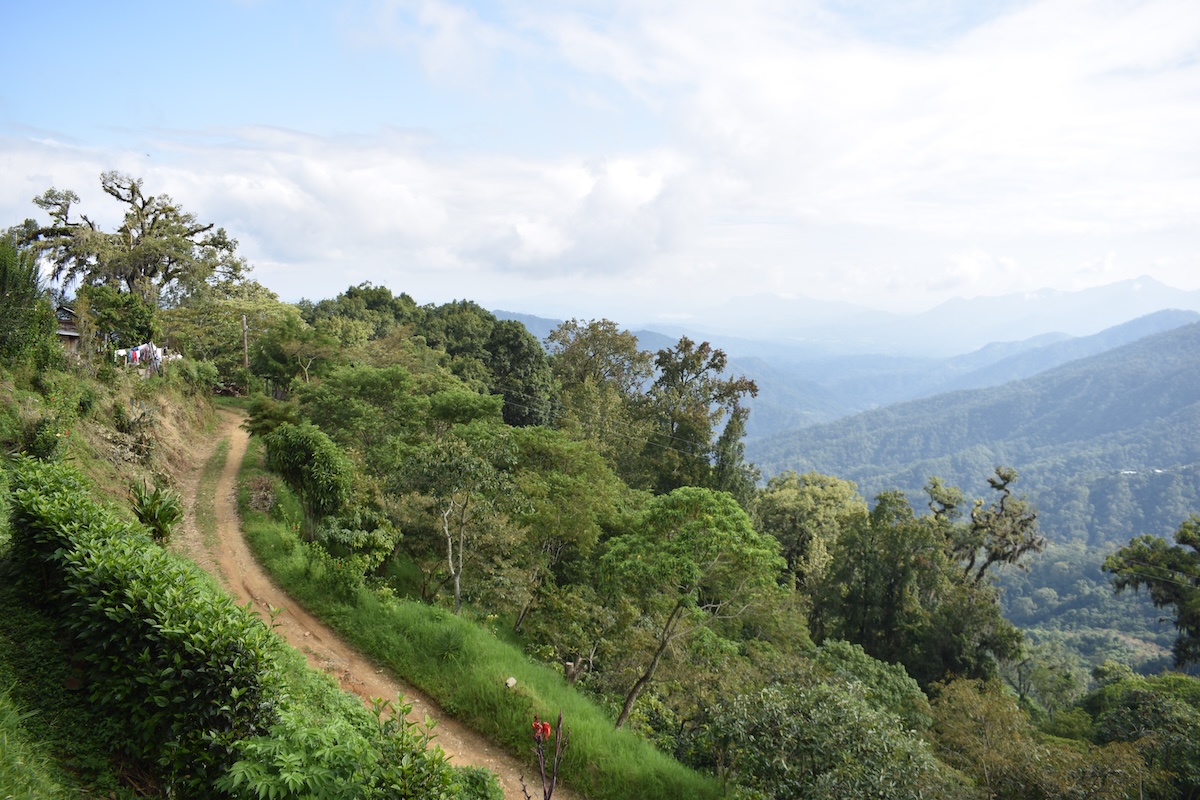In what has been the hottest year on record, over 70,000 delegates from across the world gathered in Azerbaijan to agree on a course of action to address climate change. Throughout the world there has been a frantic search for scale, an easy way to mitigate and adapt to a changing climate that can quickly clean up the atmosphere without changing much of the way we live. It’s clear that’s not possible.
The effects of climate change are real and now. Hundreds of millions of small-scale farmers are seeing the impacts of declining soil quality, reduced access to clean water and unpredictable weather patterns. In our global survey of 10,000 small-scale farmers across 18 countries, most lack sufficient income to weather market volatility and climate-related shocks.
There is little time to waste. Resources for adaptation and mitigation need to get to people quickly to avoid the worst effects. This means streamlining how climate finance hits the ground and ensuring accessibility to people in the countries most affected. During COP, Solidaridad joined and organized two panels highlighting ways that communities are accelerating locally-led efforts to strengthen food systems and adaptation strategies.
A conversation on strengthening agrifood systems
Solidaridad partnered with TrustAfrica, the World Resources Institute (WRI), and the NDC Partnership to host the session titled “Strengthening Agri-Food Systems: Opportunities to Fast Track NDC Implementation Goals.” The session highlighted strategies to unlock climate finance, transfer agri-technologies, and implement digital tools to accelerate the achievement of Nationally Determined Contributions (NDCs). An emphasis was placed on the roles of women, youth, and marginalized communities in co-creating equitable and climate-resilient food systems.
Watch it here
Human-centered adaptation and mitigation strategies in cotton farming
When money gets where it’s most needed and the right investments are made, multi-stakeholder collaboration can transform agricultural practices and mitigate climate change. This panel session focused on locally-led efforts in cotton to deploy innovative strategies like using biochar or agroforestry on smallholder farms to improve soil health, remove carbon from the atmosphere and increase incomes of farming communities. Solidaridad teamed up with Better Cotton, and Artistic Milliners.
Watch it here
Evaluating the key outcomes of COP 29
Beyond the talk, it’s important to consider the ultimate outcomes of COP29 Baku. In our statement prior to COP29, we reiterated the call to action from small-scale farmers who are being left behind. Where there is finance, access to it is often difficult or not adapted to the needs of these groups. COP29 was supposed to offer an opportunity to unlock climate investments to support vulnerable communities better and faster.
Did COP29 make the grade? Our team compiled their reactions to the major decisions made at the event.
Finding common ground on carbon markets
- Our perspective on progress:
Acceptable, but a focus on integrity is needed
Significant progress was made on approaches to climate change mitigation and economic adaptation efforts. A ruling under Article 6.4 of the Paris Agreement was ratified, aiming to unlock substantial climate finance by establishing a framework for international carbon credit trading. This action gives carbon markets a boost of credibility by aligning definitions and agreeing on how trade and registries will operate, adding more clarity to the burgeoning carbon market.
The next step is to build stronger safeguards to ensure fair, high-quality carbon projects that prioritize environmental integrity and equitable benefits for communities, especially the small-scale farmers who are conserving forests and implementing climate-smart agriculture. In our explainer on carbon markets, we explore what’s needed to make sure that smallholders are able to benefit and participate in these markets.
Overall, the COP29 Article 6 outcomes represent an important step forward in operationalizing global carbon markets, which can be an effective tool for mobilizing climate finance. The key will be making sure that claims are credible, respect for human rights is ensured, and carbon credit buyers complement purchases with their own climate ambition and verified emissions reductions.
Climate finance commitment to developing countries tripled
- Our perspective on progress:
Not good enough
In the waning hours of COP29, a deal was struck on climate finance, otherwise known as the New Collective Quantified Goal, but the agreed amount fell far short of what’s needed. The new draft text for the new climate finance goal offers up a goal of $300 billion per year by 2035 for developing countries for climate action. Though this number is triple of the previous goal, it is dwarfed by the need of a minimum of $455-584 billion per year until 2030 to implement developing countries´ Nationally Determined Contributions (NDC). Urgently needed adaptation measures alone are expected to require between $215-387 billion annually up to 2030.
The urgency for increasing and channeling climate finance to where it’s most needed has never been greater. We have all the evidence we need that the climate is changing. At the current rate of support, vulnerable communities will be unable to cope with the impact of climate change. The world needs to demonstrate stronger ambition to scale up finance sources to deliver at least $1.3 trillion annually, and we look forward to following the Baku to Belém roadmap in that direction. Alongside that, it is urgent that grants and highly concessional finance made available for adaptation efforts are able to be channeled effectively and efficiently to fund locally-led climate action.
A clear need for greater focus on food and agriculture
- Our perspective on progress:
Inadequate effort
The agricultural sector, vital for food security and livelihoods, is highly vulnerable to climate shocks yet remains underfunded. Targeted investment in this sector is essential, not only to adapt to changing conditions but also to transform food systems to be more sustainable and resilient. Yet, less than 1% of climate finance goes towards small-scale agrifood systems (CPI 2023). Additionally, a recent report reveals a concerning trend: While overall public climate finance doubled between 2017 and 2022 (from $321 billion to $640 billion), the portion of funding going towards food systems has fallen from 3% to 2.5% in the same time period (Global Alliance for the Future of Food, 2024)
Overall, there was widespread agreement on what needs to be done to transform the food systems, but no substantive commitments. However, there are entry points for continuing engagement to strengthen the food and agricultural position. The Sharm el-Sheikh Joint Work on Implementation of Climate Action on Agriculture and Food Security, which are the key negotiations on agriculture and food security, made progress in Bonn this past June, and an agreement was made to hold two workshops over the next two years.
- The first (June 2025) will be on Systemic and Holistic Approaches to Implementation of Climate Action on Agriculture, Food Systems and Food Security, Understanding, Cooperation, and Integration into Plans.
- The second (June 2026) will be on Accessing Means of Implementation for Climate Action in Agriculture and Food Security, including Sharing of Best Practices.
We continue to call on the global community to ensure that climate finance reaches small-scale farmers and agribusinesses, prioritizing locally-led climate action that empowers communities, strengthens adaptive capacity, and secures the future of global food systems.
Global goal on adaptation lagging
- Our perspective on progress:
Lagging
Discussions on the Global Goal on Adaptation (GGA) focused on refining indicators to measure global progress in adaptation and resilience under the UAE-Belém work program. While some progress was made toward developing manageable, evidence-based indicators, debates highlighted unresolved issues around integrating means of implementation, such as finance and capacity-building.
Solidaridad continues to call for actionable solutions to support vulnerable communities and small-scale farmers. This means supporting locally led adaptation efforts, to build resilience against climate impacts and scale urgently needed climate change mitigation.
Gender and social inclusion, work in progress
- Our perspective on progress:
Small signs of progress
While ambition on gender was not raised at COP29 overall, the parties continued to acknowledge the interplay between climate change and gender. This was demonstrated with the extension of the Lima Work Programme on Gender for another 10 years. It is expected that concrete implementation plans will be established at COP30.
COP29 also supported Indigenous and local community leadership in climate action by adopting the Baku Workplan and renewing the mandate of the Facilitative Working Group of the Local Communities and Indigenous Peoples Platform. The work plan emphasizes knowledge exchange, capacity building, and integrating diverse values into climate policies, and fostering improved collaboration.
A dismal result on transition ambitions
- Our perspective on progress:
Bleak
The commitment to reducing reliance on fossil fuels remains, but action at this COP does not reflect the ambition. Due to differing national interests and dependence on fossil fuel industries, there were no notable reaffirmations of pledges to back up COP28’s landmark decision to speed up the transition. This change is the basis of every other action. There can be no mitigation of the impacts of climate change without a change in how we power the global economy. With things as they stand, the focus on mitigation and adaptation takes on greater urgency to deal with the effects of emissions that continue to balloon.

Moving forward with urgency & trepidation
COP29 was challenging. Despite the presence of thousands of people from around the globe working to collaboratively address the climate crisis, deep divides remain over key issues. Calls for reforms to the UNFCCC COP have emerged from former leaders and climate experts.
These calls make the case that the current COP structure is no longer fit for purpose and reforms are needed to redirect global action and increase ambition. Based on COP29´s outcomes, Solidaridad continues to call on the international community to prioritize the needs of the 3.6 billion people living in vulnerable communities whose lives and livelihoods are at risk, this includes small-scale farming families. Action needs to be taken to increase and improve access to climate-finance, channel climate finance towards locally-led and gender equitable climate solutions, and provide catalytic finance towards payment for ecosystem service initiatives.
Now all eyes are on COP30 in 2025, which will take place in the city of Belém in Brazil’s Amazon region. This is the world’s best chance to realign global efforts on climate action, with hopes that it will deliver bold commitments and robust frameworks needed to bridge current gaps in ambition, finance, implementation and accountability.

